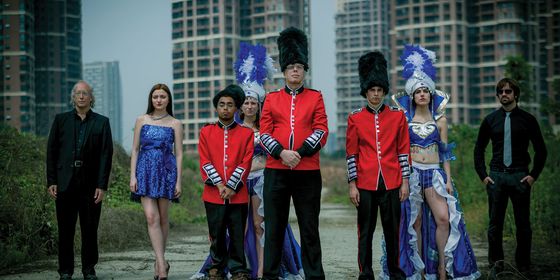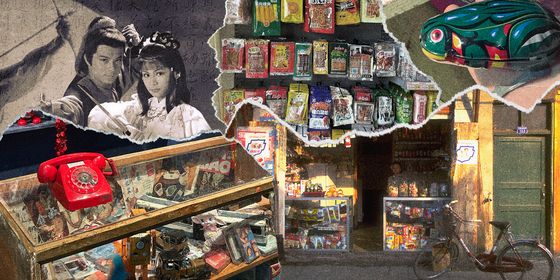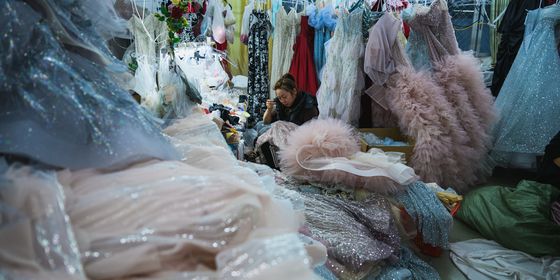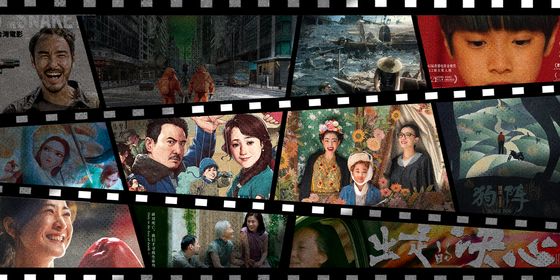A filmmaker’s deep dive into the “rent-a-foreigner” industry reveals a murky business
David Borenstein is the director of Dream Empire, a recent documentary which explores the use of “foreign actors” to promote the sale of apartments in remote parts of China’s then-booming Chongqing municipality. The prize-winning documentary follows Yana, a woman who recruits foreigners, including Borenstein, to perform at sales events in order to make the developments appear more “international.” But what begins as a look at a quirky hiring practice soon gives way to a glimpse into the darker economic forces shaping real estate bubbles in China. TWOC spoke with the director in the middle of a tour to promote Dream Empire.
Did your project’s final result end up matching your initial concept? Did it change much along the way?
Originally, I was following Yana and her boss at the time, before she launched her own company. This was before I had really gotten to know her so closely, and she was still very much a secondary character at this point. But when she left that company, I ended up following her and that, of course, changed the documentary.
There’s quite a contrast between the lighthearted look at the “foreign monkey” performers, and the rather grave issues associated with the real estate boom. When you started out doing the project, was this bubble always going to be the focus, or did it change as you discovered more?
Yes, it was certainly part of the plan and I was aware of the real estate bubble building at the outset of the project. I wasn’t interested in just doing something lighthearted, I didn’t want to focus on just the performers. I was much more interested in the juxtaposition of these issues and the real estate market itself. I wanted to look into what was real and what was fake, and the real estate bubble issue was at the core of this…it was pretty clear that something was wrong right from the beginning.
You discuss some very personal subject matter with the protagonist, Yana.
When you work on a project like this, you spend a lot of time with someone, building a relationship, you become friends. Originally I had been much more focused on the real estate issues, bubbles, sociology, and the economy, and I saw people as cogs or tools within these broader issues, but getting to know her really made me focus on the human side of things, and see them as individuals.
Are you still in touch?
Yeah, we’ve stayed in touch, there’s actually some good news there—a German award ceremony is actually inviting her out to attend the event. It will be her first time out of the country and it’s quite exciting.
The film recently scooped the top prize at the Thessaloniki International Documentary Film Festival, so it seems like the reception has been pretty positive.
The reception has been great, I would say that we’re certainly among the top, if not the top China documentary this festival season. We’ve had a great run with the television networks throughout Europe, a lot of public television stations are screening it. We’re looking toward releases in Asia later in the year and we’ll see for China. We haven’t really begun looking into the release there.
Did you have any difficulties filming?
A lot of the time when it came to getting interviews and filming, it was basically the same kind of foreigner privilege that was the focus of much of the documentary. We would show up to real estate shows with cameras and recording gear, and they would hand us the same gift baskets they would give other media outlets.
In the documentary, there is one scene with a developer who basically built an entire city…scenes of him showing off roads, buildings, a shopping mall, and even utilities that he built. This was obviously a pretty powerful guy; how did you manage to get him to go on camera?
That’s actually a really interesting story. For that interview, I showed up at the real estate company and asked to interview him, and he accepted, but again, a lot of this was foreigner privilege. It was actually the first time he had done an interview this personal, where someone was following him around. He was using us as well, though—at one point, he took us to a water treatment plant, which had apparently been in the news. Local newspapers had been reporting on problems with the water, saying it was brown…We checked around with locals and they all told us that there were serious problems with the water, and these were the people who had experienced it. [The boss] agreed to the interview, but part of it was that he wanted to take us to this treatment plant, where there were other journalists to record us interviewing him. We found out later, he had managed to arrange so there were local news stories reporting about how “foreign media” had come to interview him about how great his water treatment plant was. He was using us, just as we were using him. It was the exact same kind of fake reality that we were focusing on in the rest of the documentary.
The documentary tackles some pretty complex issues. How much research did you put into the project behind the scenes?
There was so much research…we spoke to many experts on the economy and the housing bubbles, and so much of it couldn’t go in the final version, because it didn’t fit with the more personal, human approach that I mentioned earlier. But some of the comments and material from those interviews was fascinating. In one case, we spoke to someone who revealed that there had been propaganda orders in the local area which restricted coverage of negative financial issues…it really highlighted one of the key themes, which we hope we communicated in the final cut, that sociologically and economically, we can’t necessarily use Western economics and attitudes to figure out what is going on in the Chinese housing bubble. If information can be cut off, and so much is fake, then how can we assume that these economic trends are following the same kinds of expectations?
In one scene, there’s a kind of brawl, almost a riot, that occurs while you’re performing. Can you tell me a little more about what happened that day?
That was a crazy day. We were performing while the actual brawl was happening, but afterwards…we saw all the destruction. While it was actually going on, the cameraman knew more than we did. There had been protesters from different groups converging on this real estate fair, we asked around and tried to find out what happened [and] found mobile phone footage, some of which ended up being used in the final cut.
Were there any occasions when you felt that you were flying by the seat of your pants?
The riskiest moment was probably when we were filming some of the people protesting these [housing] developments. In the film, you can actually hear the cinematographer, just before he turned off the camera, saying, “David, we have to go.” At that time, some vans had pulled up and plainclothes police were arriving.
Darkly Dreaming Documentary is a story from our issue, “Wheel Life China.” To read the entire issue, become a subscriber and receive the full magazine.












